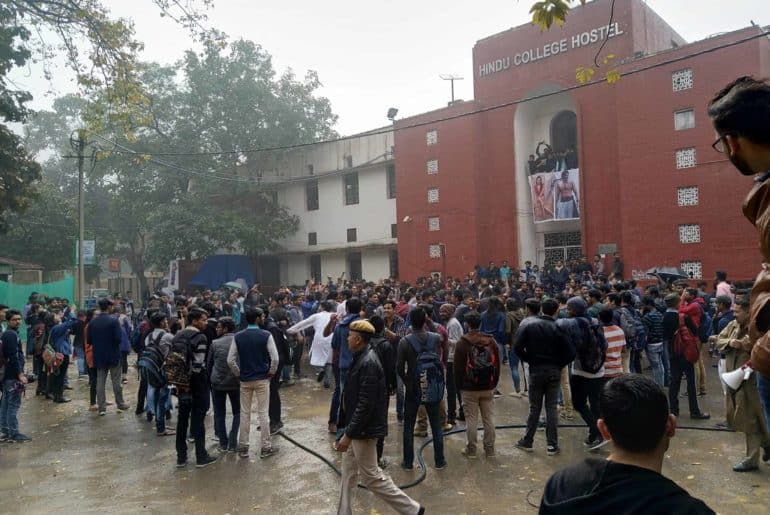“I am Indian. Then why is the government sending me into Exile?’, ‘Can the world’s largest democracy endure another five years of Modi Government’? A writer puts forth two questions for the world, but perhaps one is the answer to another question itself.
“A citizen’s right to liberty is sacrosanct and non-negotiable. It is a fundamental right granted under the Constitution and can’t be infringed upon by the state,” as declared by the Supreme Court of India in the Prashant Kanojia case, who was allegedly detained by the UP Police for making remarks against the State’s Chief Minister Yogi Adityanath.
The aforementioned lines were stated by Justice(s) Indira Banerjee and Ajay Rastogi bench and certainly provides a sacred safeguard to the citizens and their rights, as guaranteed by the Constitution of India against the state that may attempt to vandalise the freedom of expression and establish a ‘fascist’ regime in the country. But perhaps the Government has paved a way for itself to pursue its objectives of a rashtra, suited to their ideas and philosophies by revoking the very status of this ‘citizenship’ itself and abstaining the people of being one in the first place. The National Citizenship (Amendment) Bill is anyway extremely kind towards a specific section of the society, the disavowal of riter Aatish Ali Taseer’s Indian Nationality is more than an extension of the Citizenship (Amendment) Bill.
Raised in the national capital by his Sikh mother and acclaimed journalist Tavleen Singh, Taseer rose to prominence with his debut Novel, “Stranger to History: A Son’s Journey Through Islamic Lands” which can be seen as an introspective review of his status as a Muslim. He may even be recalled as the person who hosted Sir Salman Rushdie, when he returned to India after a long exile, but he will mostly be remembered as the author of TIME magazine’s May 2019 cover story that referred to Prime Minister Modi as ‘India’s Divider in Chief’, ahead of the 2019 General Elections.
Following the release of the story, the entire social media was set ablaze, with responses from both the sides taking stark turns. The Modi Supporters started raising the issue of Taseer’s parenthood, especially with regard to his father who was a Pakistani politician; given our contempt for the country and Aatish’s identity, the claims were preferred by many and was furthered by ensuring that Taseer bewails his acts. But rather Taseer was empowered more than ever challenging the fanatic frenzy.
According to Taseer, he received a letter from the Home Ministry, Government of India, stating that they are reviewing his Overseas Citizenship of India status in September this year. To this, he duly responded by resisting against the claims made by the Government of India within 24 hours. But it was only on November 7, when the government actually abolished Taseer’s citizenship leaving him in certain ‘exile’.
What is interesting here is that all these years Taseer has lived in this country without ever being questioned about his citizenship. Although the recent developments in the country have reviewed the idea of nationalism, something of this kind is really concerning and hints towards a state that perhaps cannot accommodate dissent in anyway.
While the government says that its revoking of Taseer’s status is solely because he did hide the fact that his father was a Pakistani, the father who is being referred here is assassinated Pakistan Governor Salman Taseer, who was nowhere in Aatish’s early life, and is a relation which further receded away because of their distinct nationalities.
While the government seemed adamant in their stance, Taseer has now been joined by more than 260 writers, journalists and artists, including Margaret Atwood, Orhan Pamuk, Salman Rushdie, Chimamanda Adichie, Perumal Murugan and Amitav Ghosh, who have written to Prime Minister Narendra Modi for reviewing its decision to repeal writer Aatish Taseer’s Overseas Citizenship of India (OCI) and allow an uninterrupted travel for him in India. This has brought the Government in a screened position, and the revocation will now have larger implications in the academic domain with the status of people of such political sagacity under question. The story has now garnered worldwide support and coverage and hence the Government needs to be extremely meticulous in its decision for the best of Taseer.
Feature Image Credits: Aatish Taseer via Instagram
Faizan Salik











